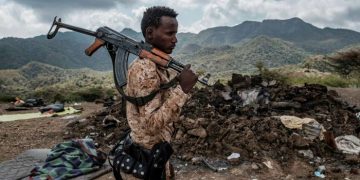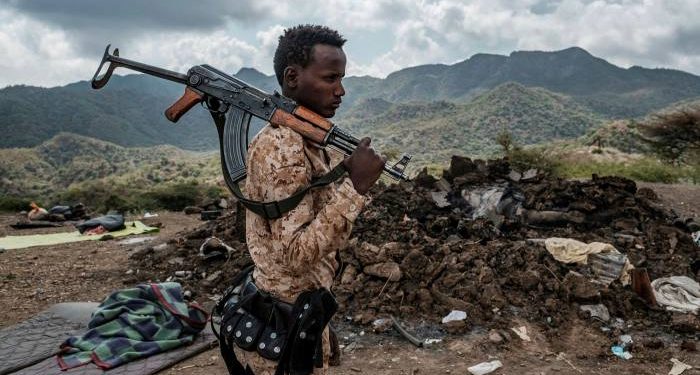By Ebi Kesiena
In a bid to restore peace and process to end two years of brutal conflict, a 27-member cabinet for Ethiopia’s war-scarred Tigray was unveiled on Wednesday, official media in the region reported.
According to Tigrai TV, the cabinet includes members of the Tigray People’s Liberation Front (TPLF) and military commanders who fought federal forces during the war.
The establishment of an interim administration was a key tenet of a peace deal signed in South Africa’s capital Pretoria in November 2022 by Prime Minister Abiy Ahmed’s government and the TPLF.
Last month, the Ethiopian government said TPLF spokesman Getachew Reda, the public face of the rebels during the war, had been appointed head of the interim government.
That followed the Ethiopian parliament’s move to remove the TPLF from an official list of terrorist groups in line with the November deal.
Debretsion Gebremichael, who had been president of the Tigray region since 2018, formally handed over the reins to Getachew during a ceremony on Wednesday, according to Tigrai TV.
“Members of the interim administration of Tigray, you have been given a responsibility to play your part in this peaceful stage of the struggle to ensure the security and the interests of the people of Tigray,” said Debretsion, who does not figure in the new lineup.
General Tadesse Worede, commander of Tigrayan forces during the war, has been named regional vice president, in charge of peace and security.
Number three in the cabinet is Tsadkan Gebretensae, who was Ethiopia’s army chief of staff during the 1990s and 2000s when the TPLF dominated the government and became chief strategist for the TPLF forces during the Tigray war.
Tsadkan has been appointed head of the “democratization and decentralization governance” secretariat.
The conflict in northern Ethiopia has killed untold numbers of civilians, displaced more than two million and left millions more in need of humanitarian aid.
It began in November 2020 when President Abiy Ahmed had sent troops into Tigray to topple the TPLF, then the regional ruling party, a move he said came in response to attacks on federal army camps.
It followed months of rancor between the two sides as the TPLF, which dominated the government for three decades, became increasingly marginalized after Abiy came to power in 2018.


































